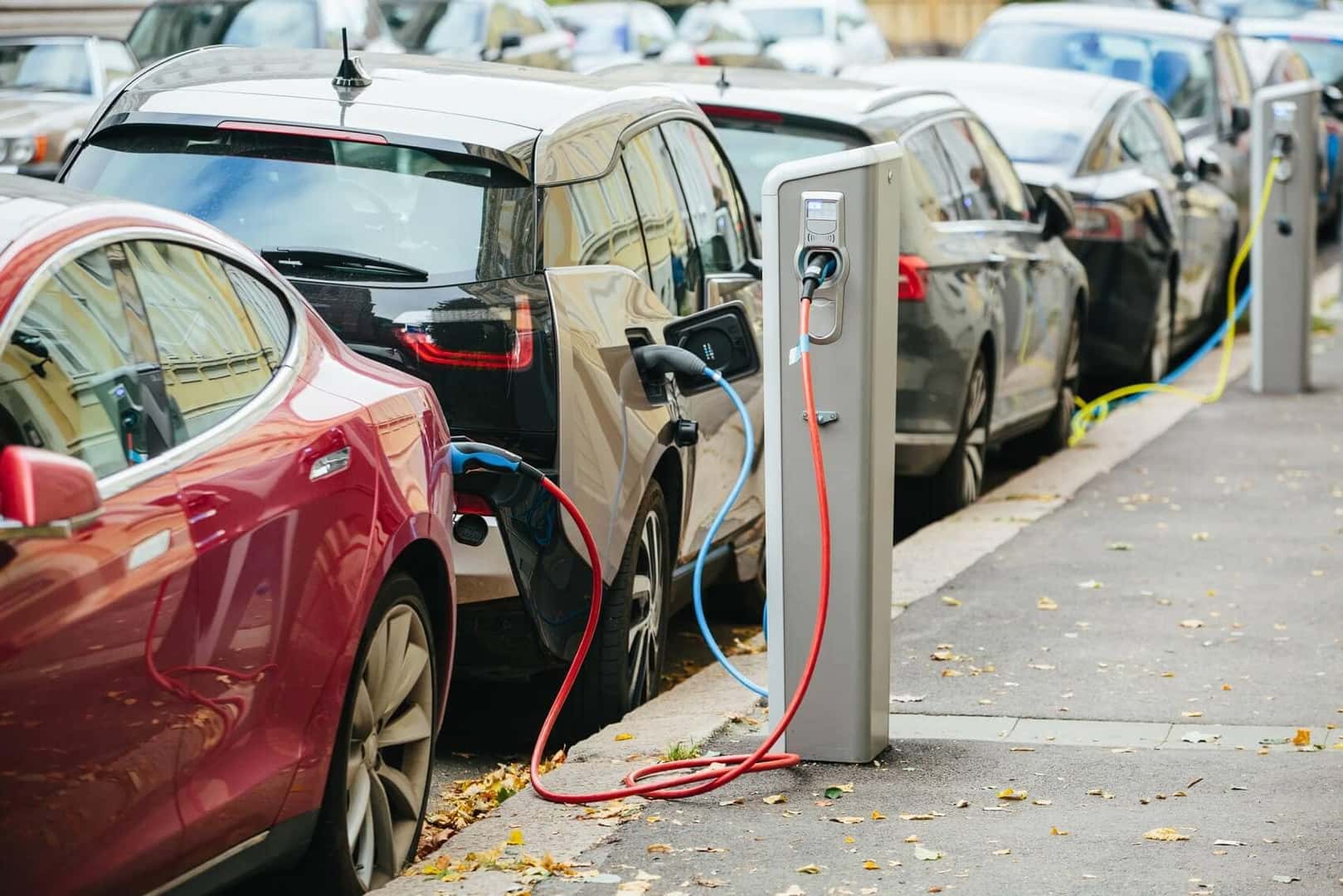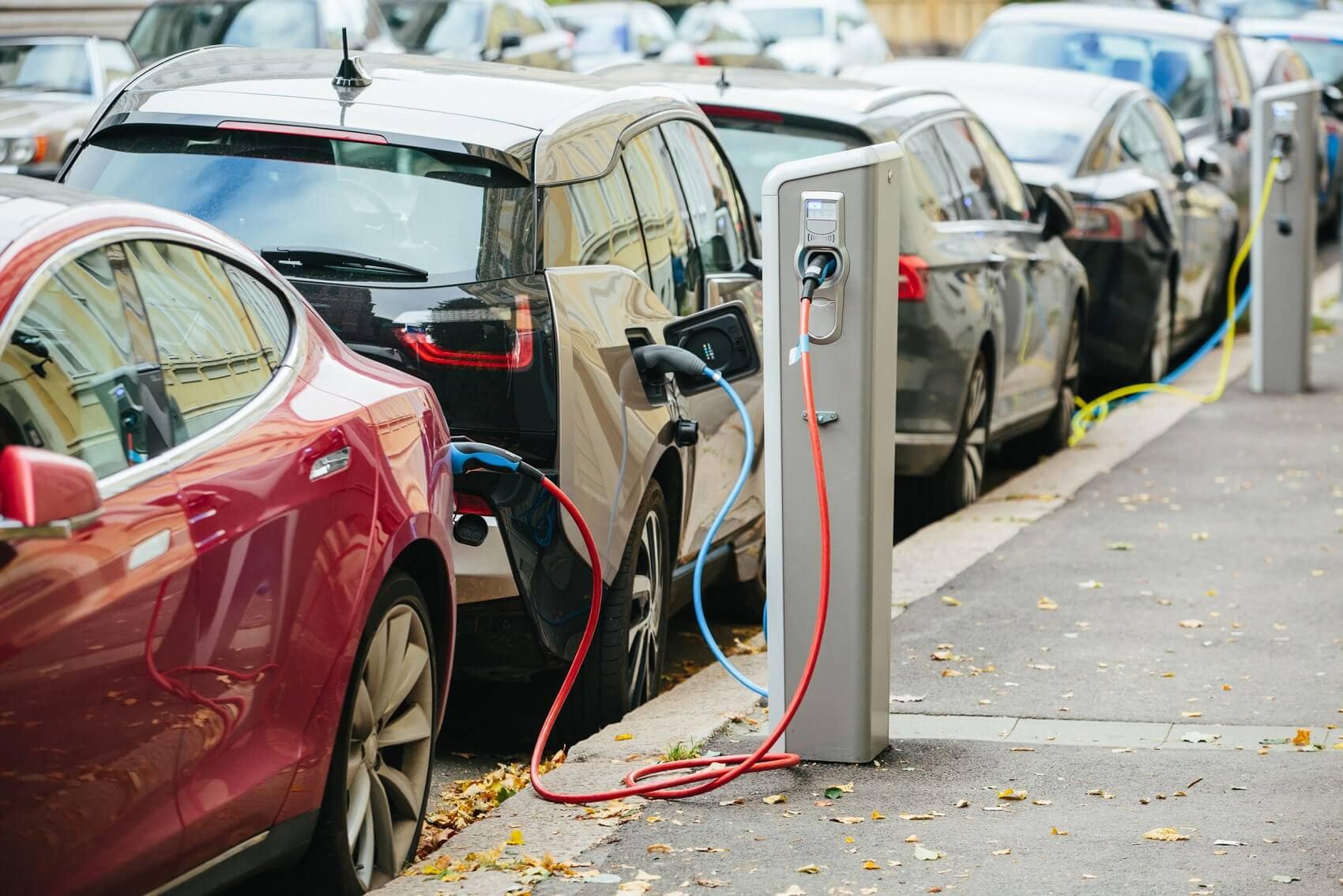
One important factor to consider When purchasing an electric car is the cost of charging the vehicle. This information allows consumers to make an informed decision and compare it to the traditional refueling costs of a gas car.
By doing some basic upfront research, consumers can estimate the cost to charge an EV, helping them determine the overall financial impact of owning an electric car.
Overview of electric cars and charging
Electric cars are becoming increasingly popular due to their environmental friendliness and cost savings in the long run. However, electric cars require different charging methods compared to traditional gasoline-powered vehicles. There are three main methods of charging an electric car:
– Home charging: This method involves installing a charging station at home and plugging the car into the station to charge.
– Public charging: Public charging stations can be found in various locations such as shopping centers, parking lots, or on the street.
– Fast charging: This is the quickest method of charging and can usually be found at charging stations along major highways or in strategic locations.
The cost of charging an electric car depends on a few factors such as the cost of electricity in the area, the battery’s capacity, and the type of charger. It’s important to understand how much electricity the car uses so that consumers can calculate the cost of charging accurately.
Why is the cost of charging an electric car important
The cost of charging an electric car is important because it allows consumers to compare it to refueling costs of a traditional gasoline-powered car.
This comparison helps in understanding the overall financial impact of owning an electric car. Moreover, understanding the cost of charging an electric car is important for planning long trips and choosing the most cost-effective method of charging along the way.
In conclusion, the cost of charging an electric car depends on various factors, and understanding these factors is important for making an informed decision regarding the purchase of an electric car. By doing some basic math using the electric bill, consumers can estimate the cost to charge an EV, which is crucial in determining the financial implications of owning an electric car.
Cost of Charging at Home
Factors affecting the cost of home charging
There are a few factors that can affect the cost of charging an EV at home, including:
- Your location: Utility rates can vary depending on where you live, impacting how much you pay for electricity.
- The cost of electricity: Your electricity rate can change over time, so it’s important to check with your utility provider to see how much you’re paying per kilowatt-hour (kWh).
- The size of your battery: The larger your EV’s battery, the more it will cost to charge.
- How often you charge: Charging your EV frequently can increase monthly costs.
Calculating the cost of charging at home
To calculate the cost of charging your EV at home, follow these steps:
1. Determine your electricity rate per kWh. You can find this on your utility bill or by contacting your utility provider.
2. Find the size of your EV’s battery. This information should be listed in your vehicle’s manual or on the manufacturer’s website.
3. Calculate the cost to fully charge your battery by multiplying the battery size by the cost per kWh. For example, if your battery size is 60 kWh and your electricity rate is $0.10 per kWh, the cost to fully charge your battery would be $6.00.
4. Divide the cost to fully charge your battery by the number of days in the month to get your daily charging cost.
5. Multiply your daily charging cost by the number of days you charge your EV in a month to find your total monthly cost.
Pros and cons of home charging
There are both pros and cons to charging your EV at home. Some of the benefits of home charging include:
-Cost savings: As mentioned earlier, charging your EV at home is significantly cheaper than using a public charger.
-Convenience: You can charge your EV while you’re at home, which saves time and is more convenient than driving to a public charger.
-Sustainability: If you charge your EV using solar panels, you’ll be using a sustainable source of energy.
However, there are also some downsides to home charging, such as:
-Upfront costs: You’ll need to purchase an EV charger for your home, which can be expensive.
-Limited range: Depending on the size of your battery, you may not be able to travel as far without stopping to recharge.
-Long charging times: Level 1 chargers, which are the most common at-home chargers, can take a long time to charge your EV fully.
Overall, charging your EV at home is a cost-effective and convenient option, especially if you use home solar panels to power your charger. However, it may not be the best choice for everyone, depending on factors such as your driving habits and access to public chargers.
Cost of Public Charging
Public charging stations are available for electric vehicle (EV) owners who need to charge their vehicles on the go. However, the cost of using public charging stations can be significantly higher than charging at home.
In this section, we will explore the cost of public charging, the factors that affect the cost, and the pros and cons of using public charging.
Types of public charging stations
There are two types of public charging stations – Level 2 and Level 3. Level 2 chargers provide up to 25 miles of range per hour of charging, while Level 3 chargers provide up to 90 miles in 30 minutes of charging.
Factors affecting the cost of public charging
The cost of public charging can vary based on several factors, including:
– Local electricity rates: The cost of electricity can vary depending on where you are charging your vehicle.
– Type of charger: Level 3 chargers generally cost more to use than Level 2 chargers.
– Time of charging: Some public charging stations charge more during peak hours.
– Network provider: Some charging stations are operated by network providers who set their own rates.
Calculating the cost of public charging
To calculate the cost of public charging, you need to know the cost per kWh charged by the charging station. This information is typically displayed on the charging station or in the charging station application. Once you know the cost per kWh, follow these steps:
1. Find the size of your EV’s battery.
2. Estimate the percentage of battery charge needed.
3. Determine the cost per kWh from the charging station.
4. Multiply the battery size by the percentage of charge needed to get the exact amount of electricity needed.
5. Multiply the electricity amount by the cost per kWh of the charging station.
Pros and cons of public charging
There are advantages and disadvantages to using public charging stations. Some of the pros of public charging include:
– Convenience: Public charging stations are available on the go, making them convenient for longer trips.
– Access: Public charging stations are often located in public places that are easily accessible.
– Range flexibility: With public charging stations, drivers have the flexibility to travel longer distances without worrying about running out of battery power.
However, there are also cons to using public charging, such as:
– Cost: As mentioned earlier, public charging can be significantly more expensive than charging at home.
– Availability: Depending on your location, finding an available charging station may be challenging.
– Time-consuming: Charging at a public station can be time-consuming, especially if other EV owners are using the station at the same time.
In conclusion, public charging stations are a convenient option for EV owners, but they can be costly and time-consuming. Understanding the factors that affect the cost of public charging and how to calculate the cost can help you make informed decisions about where and when to charge your EV.
Level 2 Charging Stations
Overview of Level 2 charging stations
EV owners commonly use level 2 charging stations for home charging. These chargers typically use a 240-volt electrical system, providing a faster charging time than Level 1 chargers. Level 2 chargers require a specialized outlet and installation by a licensed electrician.
Cost of Level 2 charging
The cost of a Level 2 charging station can vary depending on the charger’s quality and the installation’s complexity. On average, the cost of a high-quality Level 2 charging system can range from $600 to $2000. The cost of installation can also vary. Some electricians charge a flat rate, while others may charge an hourly rate.
Additionally, the cost to charge an EV using a Level 2 charger can range from $0.20 to $0.25 per kWh. Depending on the local electricity costs and regulations, this cost may be slightly higher or lower.
Comparison between home and public Level 2 charging
Charging an EV at home using a Level 2 charger is significantly cheaper than using a public charger. Public charging systems may charge up to $0.60 per kWh, which is almost three times the cost of Level 2 charging at home.
However, there are some advantages to using public Level 2 chargers. These chargers are widely available, and charging times can be faster than at home. Furthermore, public charging is essential for EV owners who travel longer distances and cannot rely on home charging alone.
In conclusion, Level 2 charging stations are ideal for home charging of EVs. The cost of installation and charging is affordable, and it ensures that the EV is always ready for use. Public charging stations are an additional resource for EV owners, but they may not be cost-effective for regular charging. Overall, EV owners should consider their charging needs and choose the most convenient and affordable option.
Level 3 Charging Stations
Overview of Level 3 charging stations
Level 3 charging stations, also known as direct current fast chargers (DCFC), are the fastest type of charging stations available. They operate using a 480-volt electrical system and can charge an EV battery to almost full in just an hour. Level 3 chargers are commonly found at hotels, shopping centers, and rest areas. Tesla, a well-known brand of electric cars, has its proprietary network of chargers called Superchargers, which are Level 3 chargers.
Cost of Level 3 charging
Using a Level 3 charger can be significantly more expensive than using a Level 2 charger. The total cost to charge an electric car using a Level 3 charger can range from $10 to $30 per charge. This equates to about $0.40 to $0.60 per kWh. The cost per kilowatt-hour is significantly higher than that of Level 2 charging stations, which usually cost between $0.20 and $0.25 per kWh. It is important to note that the exact cost of charging an EV using a Level 3 charger depends on local electricity costs and regulations.
Comparison between home and public Level 3 charging
Just like Level 2 charging, charging an EV using a Level 3 charger may not always be cost-effective compared to home charging. Public Level 3 chargers can charge up to $30 per charge, which can be costly over time. Home charging using a Level 3 charger is not recommended as these chargers require a specialized electrical system, which is expensive to install.
However, there are some advantages to using public Level 3 chargers. For EV owners who travel long distances, Level 3 chargers provide a convenient and fast option to recharge their vehicle. In contrast to Level 2 charging stations, Level 3 chargers provide a more rapid charging time and, in turn, reduce the time spent waiting for a charge.
In conclusion, Level 3 charging stations are the fastest electric car charging method. However, using public Level 3 chargers can be significantly more expensive than charging from home, which usually requires a Level 2 charger.
EV owners should consider their needs and weigh the convenience of rapid charging against the cost of using public charging stations. It is essential to note that home charging options may not be feasible for all EV models, and some models may require specific charging systems and adaptors.
Electricity Rates by State
Overview of State Electricity Rates
Electricity rates vary by state and can significantly affect the cost of electric car charging. The average rate of electricity in the US is 13.31 cents/kWh, but this can range from as low as 8.53 cents/kWh in Idaho to as high as 33.23 cents/kWh in Connecticut.
How electricity rates affect the cost of charging an electric car
The cost of charging an electric car depends on the size of the car’s battery and the average electricity rates in the state. For instance, charging a small electric car (with a battery capacity of 16.7 kW) in North Dakota (with an average electricity rate of 8.61 cents/kWh) would cost around $1.44. In contrast, charging the same car in Connecticut would cost nearly $5.55.
Furthermore, larger electric cars with battery capacities of 68 kW or 123 kW would cost significantly more to charge in states with higher electricity rates than those with lower rates. For example, charging the largest electric car in Hawaii (with an average electricity rate of 27.55 cents/kWh) would cost over $52.50, while charging it in Idaho (with an average electricity rate of 8.53 cents/kWh) would cost around $16.50.
Comparison of electricity rates among states
Using data from the US Energy Information Administration, California has the 45th highest electricity rate at 27.15 cents/kWh, while Colorado has the 22nd highest rate at 13.82 cents/kWh. Meanwhile, Connecticut has the highest electricity rates in the country, with an average of 33.23 cents/kWh, while Alabama has the lowest average rate at 9.27 cents/kWh.
It is essential to note that the cost of charging an electric car not only depends on the electricity rate but also on the size of the car’s battery and the charging station used. Level 2 charging stations, commonly used for home charging, can cost anywhere from $600 to $2000, with charging rates between $0.20 to $0.25 per kWh. In comparison, public charging stations may charge up to $0.60 per kWh, which is almost three times the cost of Level 2 charging at home.
In conclusion, the average cost of electricity rates in different states can significantly impact the cost of charging electric cars. While electricity rates in some states are considerably high, others offer affordable rates. However, EV owners should consider their charging needs and choose between home or public charging stations, depending on their convenience and affordability.
Battery Size and Charging Costs
Overview of how battery size affects charging costs
The size of an electric vehicle’s battery can significantly impact the cost of charging the car. The larger the battery capacity, the more expensive it is to charge. This is because more extensive batteries require more electricity to reach full capacity. Therefore, the cost of charging a 50 kWh battery would be more than charging a 25 kWh battery.
Calculating charging costs based on battery size
To calculate the cost of charging an electric car, one can use the electric vehicle charging cost formula. This involves multiplying the battery capacity in kilowatt-hours by the electricity cost per kilowatt-hour. For example, if the battery capacity is 25 kWh, and the electricity rate is 13.31 cents/kWh, the charging cost will be $3.47.
Comparison of charging costs for different battery sizes
The table below shows the average cost to charge electric vehicles with different battery sizes based on the national average electricity rate of 13.31 cents/kWh.
Table showing the average cost to charge an electric vehicle based on battery size
Battery Capacity (kWh) Average Charge Cost
5 kWh $0.66
10 kWh $1.33
15 kWh $1.99
20 kWh $2.66
25 kWh $3.33
30 kWh $3.99
35 kWh $4.66
40 kWh $5.32
45 kWh $5.99
50 kWh $6.66
As seen in the table, the cost of charging an electric vehicle ranges from $0.66 for a car with a 5 kWh battery to $6.66 for a car with a 50 kWh battery.
It is important to note that the cost of charging an electric vehicle can vary depending on the state’s electricity rate. For example, charging a car with a 25 kWh battery in Connecticut, with an average electricity rate of 33.23 cents/kWh, would cost $8.31. On the other hand, charging the same car in Alabama, with an average electricity rate of 9.27 cents/kWh, would cost $2.32.
In conclusion, the size of an electric vehicle’s battery significantly affects the cost of charging the car. The larger the battery capacity, the more expensive it is to charge. However, the cost of charging an electric car will depend not only on the battery size but also on the state’s electricity rate. It is essential for electric vehicle owners to consider both factors when determining the cost of charging their vehicle.
Comparison by Manufacturer
Cost to charge electric cars made by different manufacturers
While the cost of charging an electric car varies by state, it also varies by the manufacturer. Here is a comparison of the cost to charge some popular electric cars made by different manufacturers:
- 2022 Nissan Leaf: 4.48 cents per mile (costs $6.73 to fully charge)
- 2022 Tesla Model 3: 3.97 cents per mile (costs $10.47 to fully charge)
- 2022 Ford Mustang Mach-E: 5.1 cents per mile (costs $11.67 to fully charge)
- 2022 Audi e-tron: 5 cents per mile (costs $14.51 to fully charge)
These figures are based on data from December 2022 and assume an average cost of 5 cents per kWh.
Factors affecting charging costs for different brands
The cost of charging electric cars made by different manufacturers is influenced by several factors, including the battery size, charging speed, and charging network. For instance, Tesla has a vast network of Superchargers that are faster and more reliable than other chargers. This means that Tesla electric cars can handle long-distance travels better and can charge faster.
On the other hand, manufacturers such as Nissan and Ford do not have the same extensive network of fast chargers like Tesla. Instead, they rely on third-party chargers, and charging times can vary depending on the charging station. While these third-party chargers may be slower, they are less expensive than Tesla’s Superchargers.
Another factor that affects the cost of charging is the battery size. Larger battery sizes will take longer to charge and will cost more. For instance, the Audi e-tron has a larger battery than the Nissan Leaf, which means it will take longer and cost more to charge.
In conclusion, the cost of charging electric cars varies by state and manufacturer. Electric vehicle owners should consider the charging network, battery size, and charging speed when determining the expected charging costs of their car.
Conclusion
In conclusion, the cost of charging an electric vehicle varies depending on several factors, including the battery size, charging speed, and the manufacturing brand. Owning an electric car can be cost-effective in the long run, especially if the driver can charge their vehicle at home or take advantage of free public charging stations.
Summary of Key Points
- The cost of charging an electric vehicle depends on multiple factors, including the battery size, charging speed, and the manufacturing brand.
- An electric vehicle can be cost-effective if the driver can charge their car at home or use free public charging stations.
- The cost per kWh and the charging time vary depending on the charging station’s location and the electric vehicle’s brand.
- Some manufacturers, such as Tesla, have a vast network of Superchargers that are faster and more reliable than other chargers, while others rely on third-party chargers.
- Electric vehicle owners should consider the charging network, battery size, and charging speed when determining the expected charging costs of their car.
Future of Electric Car Charging
As the number of electric vehicles on the road increases, the infrastructure for charging them will also need to expand. Governments around the world are investing in public charging stations to make it more convenient for electric vehicle owners to charge their cars.
In addition, manufacturers are also developing new technology to make charging faster and more efficient. Companies are investing in ultra-fast chargers that can charge electric cars in a matter of minutes. This technology will make it easier for electric vehicle owners to take long road trips.
Potential Changes to Charging Costs and Infrastructure
As the technology for electric cars and charging infrastructure evolves, there may be changes in the cost and availability of charging. Governments may begin to offer incentives for electric vehicle owners to install chargers at their homes, providing a more accessible and convenient charging option.
Manufacturers may also develop better batteries that require less time to charge and have a more extended range, making electric cars even more appealing to consumers. These advancements will make it more accessible and affordable to own an electric vehicle.
In conclusion, the cost of charging an electric vehicle varies depending on several factors such as the battery size, the charging network, and the charging speed. As technology continues to evolve, and the infrastructure expands, it is likely that electric vehicles will become even more cost-effective and convenient to use.



